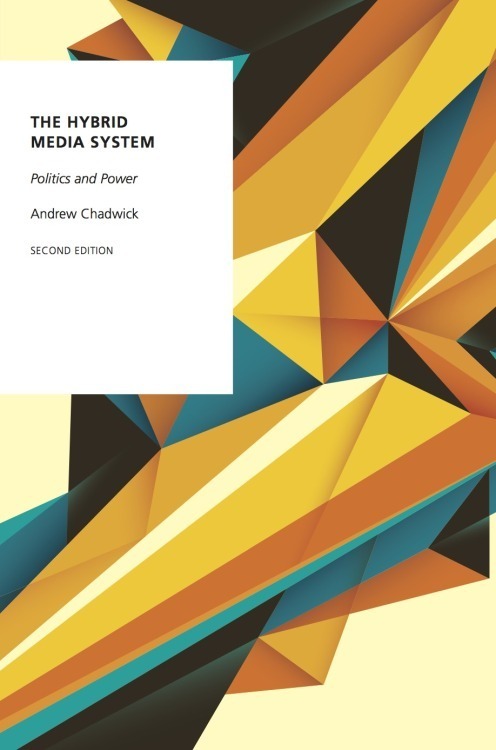Guest Post: William H. Dutton on his new book The Fifth Estate: The Power Shift of the Digital Age
/“The collectivity of internet users who have been able to enhance their informational or communicative power online are what I call the ‘Fifth Estate.’ This, I argue, is the power shift of the digital age.”
On the 9th of June 2023, the climate activist Greta Thunberg announced the end of her school strikes for climate. It was five years before, in 2018, when Greta was 15 years old, that she began skipping classes to protest outside the Swedish Parliament for politicians to act on climate change. She held a sign that now famously read “Skolstrejk för klimatet” (School strike for climate). A photo of Greta on strike with her sign went viral on multiple social media sites, including Instagram and Twitter. It struck a chord with students and climate activists worldwide. Her unique and informed voice on these issues enabled her to build on this notoriety through interviews and speeches. Her global influence led to her being nominated three consecutive times for the Nobel Peace Prize as well as being chosen as Time magazine’s Person of the Year in 2019.
In my book, I use Greta Thunberg’s origination and sharing of content on the internet and social media as an exemplar of a Fifth Estate actor. She used the internet in strategic ways to enhance her communicative power in relation to other individuals and institutions, from the Swedish Parliament to the United Nations. She was not the representative of a government. Not a public intellectual. Not among the business or economic elite. She was not a journalist. She was a young internet user who was able to strategically enhance her voice online in a strategic way. The collectivity of internet users who have been able to enhance their informational or communicative power online are what I call the “Fifth Estate”. This, I argue, is the power shift of the digital age.
Greta is an exceptional individual but you will see many other illustrative examples of Fifth Estate actors in my book. They have found the internet valuable in searching, originating, networking, collaborating, or leaking information in ways that enhanced their informational or communicative power relative to others. In 2013, I estimated that up to a third of internet users in Britain used the internet in ways, such as for originating content, that would enable them to play a Fifth Estate role. Since that time, the rise of new social media, mobile internet, and increasingly powerful tools, such as recent developments in generative AI and large language models, are putting many more internet users in positions that they can become a Fifth Estate actor at any moment, such as when witnessing an event.
I call them the Fifth Estate because the resources supporting their power are not in line with those of the more prominent categories of actors, such as an independent press, which has been called the Fourth Estate. In preindustrial societies, the estates included the clergy, aristocrats, and the commons, each of which have post-industrial analogies to the power of public intellectuals, business and economic elites, and governments.
The press emerged as a new Fourth Estate when newspapers enabled journalists to reach large sections of the public, enabling them to describe and interpret events in politics and society in ways that gave journalists an ability to hold governments and other estates to account. In the US, the press was also viewed as a Fourth Estate, distinct from the executive, legislature, and judicial branches of government—America’s separation of powers. From estate theory or the separation of powers, the press was a potential force for greater pluralism in politics, but only if they were independent of the government (not the state press), or of commercial influence over their content. If independent, the press supported greater pluralism across the institutions of liberal democratic states.
Likewise, the Fifth Estate contributes to the pluralism of politics in ways that can support democratic processes. I’ve called it the internet’s gift to democracy. But it is also a source of social accountability in nearly every sector of society—not only in the political process. Consider any sector, such as medical care, education, or your household, and ask if you can use the internet in ways that enhance your informational power, such as in being more informed when communicating with your doctor, your teacher, or other members of your family. Maybe you have a partner or child who gains an advantage over you through their skills in using the internet, but power shifts.
There are many aspects to the concept of the Fifth Estate and its role in politics and society. If you are more aware of this power shift, you are more likely to act in ways that take advantage of its affordances. You might also view initiatives in policy and regulation in new ways when you see them through the lens of the Fifth Estate.
I hope you read on. My book is available digitally as well as in print. Let me know what you think. My email address is William.Dutton@gmail.com
The Fifth Estate: The Power Shift of the Digital Age is published by Oxford University Press in the Oxford Studies in Digital Politics series.




